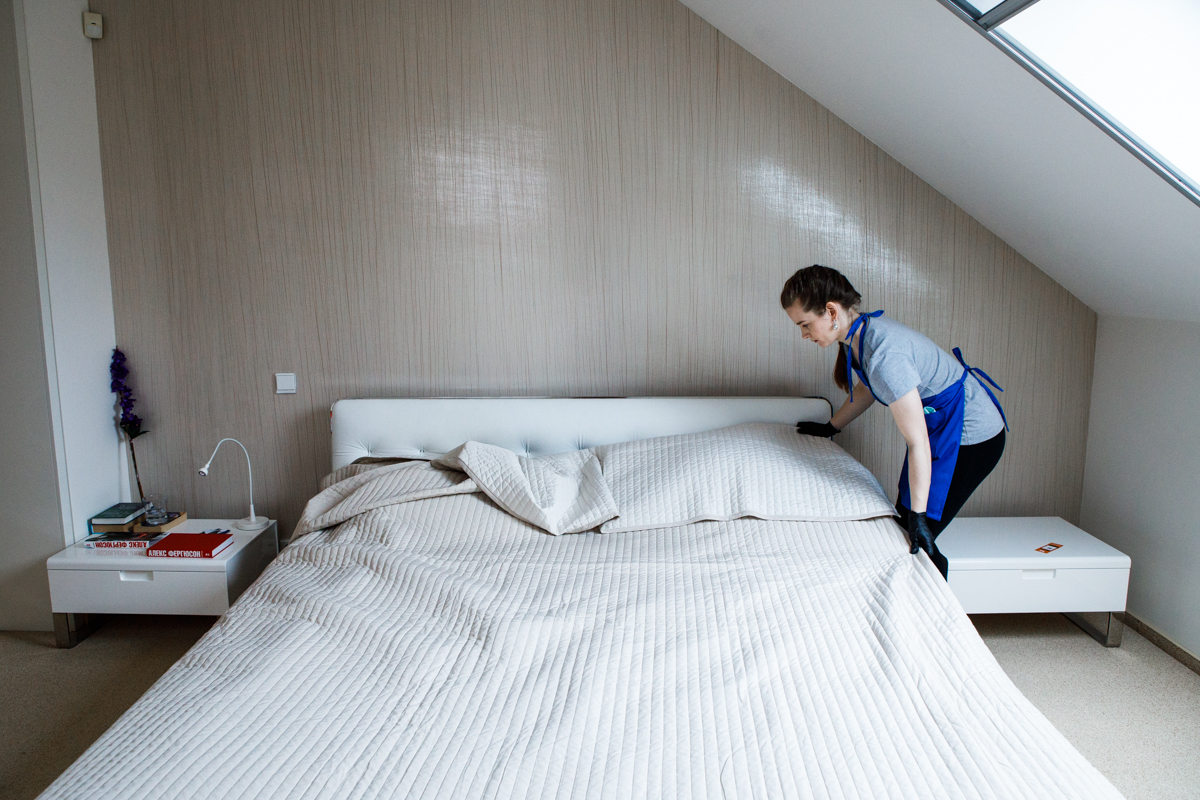Is Ordering Cleaning Services in Berlin a Necessity or a Luxury? Market Trends and Growth Projections
Changing Attitudes Towards Cleaning Services in Berlin: From Luxury to Norm
In Berlin, hiring cleaning services has traditionally been viewed as a luxury. However, over the past decade, this perception has shifted significantly, especially among younger professionals and families. Several factors are driving this change:
-
Urban Lifestyle and Time Constraints: As more people in Berlin lead busy lives, balancing work, family, and social commitments, convenience has become a priority. For many residents, outsourcing cleaning tasks is now seen as a practical necessity rather than a luxury. The demand for such services is particularly strong among dual-income households and young professionals who value time-saving solutions.
-
Cultural Shifts and Changing Demographics: Berlin’s international population has grown, bringing with it more diverse attitudes toward household help. In many cultures, hiring cleaners is a norm, and this influence has gradually changed local perceptions. Additionally, the rise of flexible work schedules and remote working has led to more people spending time at home, increasing the demand for regular cleaning.
-
Affordable Options via Digital Platforms: Platforms like Helpling and Cleanwhale.de have made it easier and more affordable for Berliners to access cleaning services. The availability of transparent pricing, flexible scheduling, and customer reviews has democratized access, making it possible for more people to consider hiring cleaners regularly.
2. Market Growth and Future Projections

The cleaning market in Berlin has experienced steady growth in recent years, with demand expanding beyond traditional high-income households. According to industry reports, the market for residential cleaning in Berlin has grown by approximately 5-7% annually over the past five years, driven by urbanization, changing lifestyles, and the availability of tech-driven booking platforms.
-
Growth Segments: The fastest-growing segments include eco-friendly cleaning services, subscription-based models, and specialized cleaning (e.g., deep-cleaning, post-renovation). As environmental consciousness grows, more consumers are opting for sustainable cleaning products and services, adding new dimensions to market demand.
-
Forecasts: Market analysts project that Berlin’s cleaning industry will continue growing at a moderate pace, with demand for residential services expected to increase by 4-6% annually through 2030. The introduction of smart home technology and automated cleaning solutions may influence the market, but human-led services are likely to remain dominant, especially for specialized tasks.
3. Government Assistance and Social Support for Cleaning Services
In Germany, certain segments of the population can receive social assistance for cleaning services. For example:
-
Elderly and Disabled Residents: Social welfare programs provide support for elderly and disabled individuals who cannot manage household chores. Through health insurance and social services, these residents may receive financial assistance to hire professional cleaners.
-
Subsidized Services: Under certain conditions, families with low incomes or those receiving other forms of social assistance may be eligible for cleaning subsidies. This can include coverage for cleaning as part of broader care and home support services.
While comprehensive data on the number of people receiving such assistance in Berlin is limited, these programs are critical in ensuring that vulnerable groups have access to necessary household services.
4. The Future of Cleaning Services: What Lies Ahead?
-
Increased Accessibility: As more platforms enter the market, competition is driving down prices, making professional cleaning services more affordable. This trend is likely to continue, making hiring cleaners more accessible to a broader range of people.
-
Ethical and Sustainable Consumption: As consumer values shift, demand for ethical and eco-friendly cleaning services is expected to rise. Companies that focus on fair wages, safe working conditions, and environmentally friendly products are likely to capture a larger share of the market.
-
Technology and Automation: While robot vacuums and automated cleaning systems are increasingly popular, full automation is still years away. For now, professional cleaners remain irreplaceable for thorough, high-quality cleaning, especially in complex environments.
Conclusion: The Growing Acceptance of Cleaning Services in Berlin
What was once considered a luxury is increasingly becoming the norm in Berlin. The growing demand is fueled by lifestyle changes, digital accessibility, and shifting cultural norms. While challenges like labor practices and market competition remain, the industry is poised for continued growth, with more Berliners opting for regular cleaning services as part of their daily routines.















